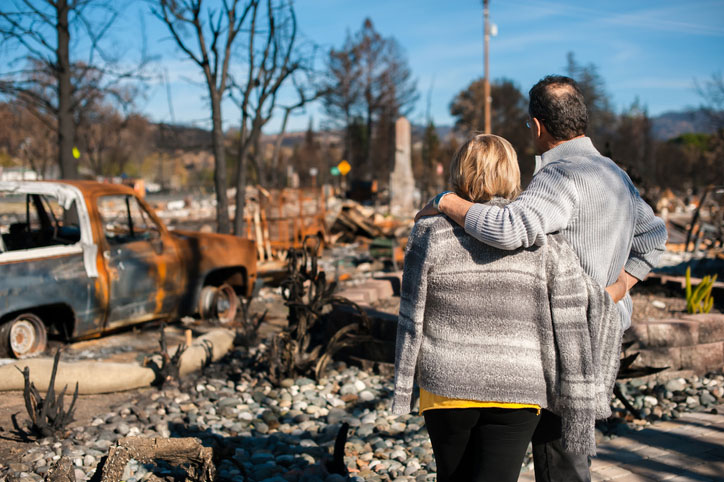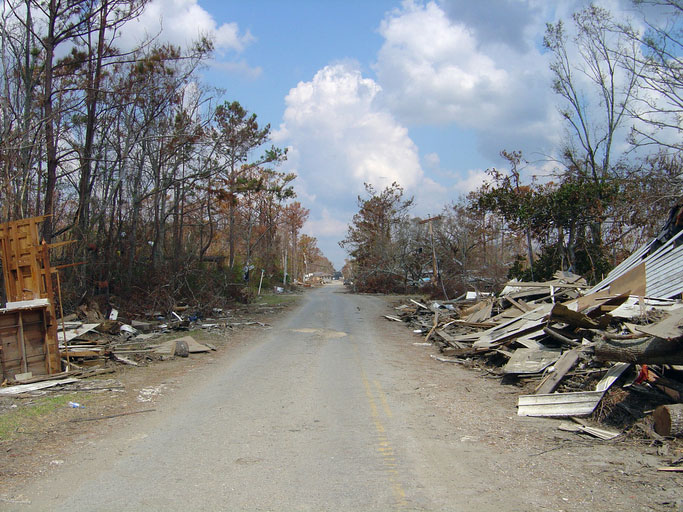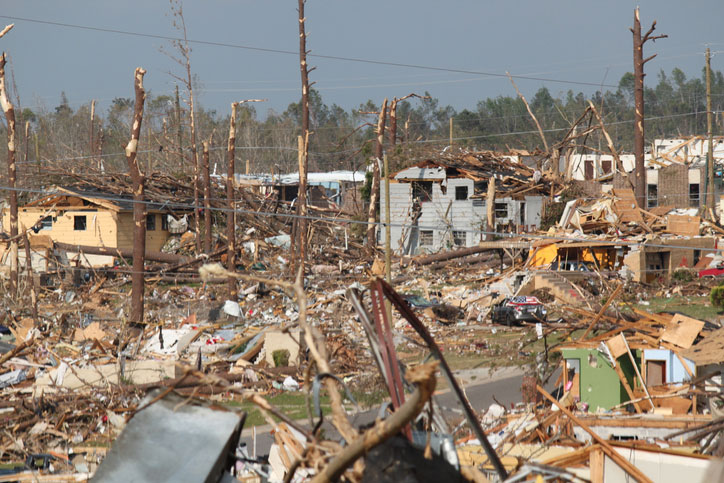According to the National Association of Social Workers (NASW), disaster social workers play vital roles in emergency preparedness, response, and recovery efforts. They coordinate with multiple agencies, provide crisis counseling, and assist in rebuilding communities devastated by catastrophic events.
Disaster management social workers serve as the bridge between emergency response systems and vulnerable populations, ensuring equitable access to life-saving resources and support services during humanity’s most challenging moments.
Quick Navigation
- What is Disaster Management Social Work?
- Career Outlook & Salary Data
- Disaster Relief Social Work: An Overview
- Emergency Response vs. Disaster Management
- A Social Worker’s Role in Disaster Relief
- Job Description & Responsibilities
- Education & Certification Requirements
- How to Become a Disaster Management Social Worker
- Frequently Asked Questions
Career Outlook & 2024 Salary Data
The demand for disaster management social workers continues to grow as climate change increases the frequency and severity of natural disasters. Understanding the career outlook and earning potential is essential for students considering this specialization.
| Social Work Category | 2024 Median Salary | Employment Numbers | Relevance to Disaster Work |
|---|---|---|---|
| All Social Workers | $61,330 | 759,740 | General baseline |
| Mental Health & Substance Abuse Social Workers | $60,060 | 125,910 | Crisis counseling focus |
| Social Workers, All Other (Specialized) | $69,480 | 64,940 | Includes disaster specialists |
| Emergency Management Directors* | $84,800 | N/A | Advanced career path |
*Emergency Management Directors represent an advanced career path for experienced disaster social workers with additional training.
The Bureau of Labor Statistics projects a 12% growth rate for social work positions through 2033, which is faster than the average growth rate for all occupations. This growth is particularly pronounced in disaster-prone regions and for organizations specializing in emergency response.
Real-World Impact: The Kentucky Tornado Response
It was unseasonably warm across Kentucky in early December 2021 as dusk quickly turned into night. In Mayfield, meteorologists interrupted their programming to alert residents that, due to the precipitous drop in temperatures, winds had rapidly begun to increase in speed and severity. Tornado warnings flashed on TV networks and radio broadcasts across the region. But in Mayfield, Huda Alubahi rushed into action and huddled in the bathroom closet of her home with her two young sons. As the tornadoes touched down all over the area, the house collapsed onto all three of them.
Buried underneath the rubble, Alubahi remembers hearing her one-year-old son crying but being unable to move her arms to comfort him. She was trapped. Fortunately, a group of rescuers managed to find her hand sticking out of the debris. They were able to pull her out and save her and her youngest son. Her three-year-old son Jha’lil, however, sustained fatal injuries.
Because of this unprecedented level of devastation, several other families found themselves in similar situations. In total, 80 people in Kentucky died from the tornadoes. Fifteen thousand buildings and trailers were destroyed, totaling more than $3.5 billion in damages.

The loss people experience in these situations is unimaginable. The grief over the loss of loved ones, homes, and communities is palpable as victims scramble to pick up the pieces of their lives. To help those affected by these catastrophic events, practitioners who are trained in disaster management social work intervene to offer unique, life-saving support.
Disaster Relief Social Work: An Overview
Before focusing on the meaning of disaster management in the context of social work, it’s essential to understand what constitutes a disaster. According to social work scholar Michael J. Zakour of Tulane University, disaster as a concept can be defined “primarily through social disruption and collective stress.”
Dr. Lisa Butler, Director of the University of Houston Graduate College of Social Work Disaster Research Program, expands on this definition: “Disasters create cascading vulnerabilities. Pre-existing social inequities become magnified, and our role as social workers is to ensure equitable recovery for all affected populations.”
To help connect survivors of disasters to the resources they need, disaster relief social workers must intervene both proactively and reactively in ways that ultimately prioritize the needs of victims.
After disasters occur, depending on the magnitude and scale of the event, communities of people are often displaced to a traumatizing degree. From natural disasters like floods, tornadoes, hurricanes, earthquakes, landslides, droughts, wildfires, and severe thunderstorms, victims’ worlds are turned upside down. Much the same can be said of human-caused catastrophes, too.

According to the Federal Emergency Management Agency (FEMA), social workers play a vital role in helping with “recovery efforts in the restoration of public health, health care and social services networks to promote the resilience, health, and well-being of affected individuals and communities.” Through these central functions, disaster management social workers engage at practically every stage of a natural disaster.
The Difference between Emergency Response and Disaster Management Social Workers
While disaster management social workers are trained and equipped to provide life-saving resources to victims, they should not be confused with emergency responders. Understanding these distinctions helps prospective students choose the right career path.
| Aspect | Emergency Responders | Disaster Management Social Workers |
|---|---|---|
| Primary Focus | Immediate life-saving operations | Long-term recovery and support |
| Risk Level | High-risk rescue operations | Lower physical risk environments |
| Timeline | First 72 hours primarily | Before, during, and months/years after |
| Training | EMT, firefighting, rescue techniques | MSW, crisis counseling, case management |
| Primary Activities | Search & rescue, first aid, evacuation | Counseling, resource coordination, advocacy |

According to the Department of Homeland Security (DHS), emergency responders develop plans for disasters that could affect their communities. Depending on the disaster, the DHS recommends that emergency responders develop protective frameworks that include:
- Evacuation protocols
- Shelter-in-place procedures
- Lockdown strategies
- Emergency sheltering
On the other hand, disaster management social workers operate differently to accomplish different objectives. For the most part, these kinds of social work practitioners will not engage in the life-threatening activities that emergency and first responders must perform. Instead, social workers intervene before, during, and after a disaster to ensure that victims receive the support they need to begin rebuilding their lives.
A Social Worker’s Role in Disaster Relief
Importantly, social workers in this field must be able to respond to both natural and human-driven disasters. These kinds of disasters can encompass events as disparate as violent conflicts between nations or states, volcanic eruptions, nuclear power plant meltdowns, and blizzards.
Dr. James Hawkins, a disaster response coordinator with the American Red Cross, notes: “Social workers bring unique skills to disaster response. Their understanding of human behavior, trauma, and community systems makes them invaluable in coordinating comprehensive recovery efforts.”
How Social Workers Prepare for Disaster Management
Proactively preparing for any disaster can help save lives and restore communities. In this capacity, disaster management social workers dedicate a significant portion of their time to developing plans and responses to ensure that victims receive the necessary support after a disaster.
Because victims of disasters experience extreme levels of disruption in their lives, social workers in disaster management must maintain advanced communication with organizations that offer support in housing, food relief, career services, and grief and mental health counseling.

Key preparedness activities include:
- Community Vulnerability Assessments: Identifying at-risk populations, including elderly residents, individuals with disabilities, and economically disadvantaged communities
- Resource Mapping: Creating comprehensive databases of available services, shelters, and support organizations
- Training and Drills: Participating in disaster response exercises with partner agencies
- Public Education: Conducting workshops on disaster preparedness for vulnerable populations
A Social Worker’s Response During a Disaster
While a comprehensive disaster response strategy can help inform effective social work decision-making, it is impossible to fully prepare for every catastrophe. Even though social workers must prepare a high-level, overarching plan to help as many people as possible, it’s necessary to understand that disasters are fluid, largely unpredictable situations.
During active disaster response, social workers typically:
- Staff emergency shelters and provide psychological first aid
- Coordinate family reunification services
- Assess immediate needs and triage cases
- Connect survivors with emergency financial assistance
- Provide crisis counseling and emotional support
- Advocate for vulnerable populations’ needs

Social Workers Build on a Foundation of Support After a Disaster
Economically and socially vulnerable populations are at greater risk both during and after a catastrophic event. According to FEMA, “disadvantaged households, such as low-wealth families, children and older adults, people with disabilities, and racial and ethnic minorities, suffer disproportionately during major disasters, be they hurricanes, floods, or industrial accidents.”
Due to these overarching, pre-existing problems, social workers must employ innovative problem-solving techniques to support those who need it effectively.
The Minnesota Department of Health has reached a similar conclusion, stating that economically disadvantaged communities face significant challenges in accessing medical attention, shelter, and food services after a disaster.

Post-disaster recovery activities include:
Direct Outreach
Social workers in the wake of a disaster must find ways to connect survivors with the help they need. In this respect, practitioners must work diligently to ensure that victims of a catastrophe have access to and receive life-saving support. This kind of strategy can be conducted on the ground, directly with community leaders, with individuals, or across digital means.
Case Management
In the aftermath of a disaster, social workers specialized in the field will typically see a stark increase in the number of individual cases they must address. Here, social workers will have to practice advanced organizational skills as they respond to individuals’ needs. Many utilize specialized software and coordination systems to track multiple cases simultaneously.
Mental Health Counseling
The trauma associated with surviving a disaster can seem insurmountable for victims. Disaster management social workers are uniquely equipped to offer emotional, psychological, and even clinical support. They often work closely with mental health social workers to provide comprehensive trauma-informed care.
Establish Support Networks
Social workers help restore communities by connecting people to support networks. The recovery process proves to be much more sustainable when social workers can help restore community-based connections and mutual aid systems.
Victim Advocacy
After media attention fades, communities are often left struggling to recover. Social workers continue to advocate for ongoing support, working with policymakers and organizations to ensure sustained aid for survivors.
Disaster Management Social Work Job Description
As practitioners specializing in responding to catastrophic events, both human-caused and natural, disaster management social workers are trained to promote individual- and community-based restoration, redevelopment, and revitalization.
Disaster management social workers ultimately emphasize community reparation, balanced with public health outreach.
Core Responsibilities
- Developing and implementing comprehensive disaster response plans
- Conducting community vulnerability assessments
- Providing crisis intervention and psychological first aid
- Coordinating with FEMA, Red Cross, and local emergency management
- Managing disaster relief cases and documentation
- Training volunteers and community members in disaster preparedness
- Facilitating support groups for disaster survivors
- Advocating for policy changes to improve disaster response
- Conducting post-disaster needs assessments
- Connecting survivors with long-term recovery resources

Essential Skills for Success
| Skill Category | Specific Skills Required |
|---|---|
| Clinical Skills | Crisis intervention, trauma-informed care, psychological first aid, grief counseling |
| Communication | Multilingual capabilities, public speaking, report writing, media relations |
| Organizational | Case management, resource coordination, database management, logistics planning |
| Leadership | Team coordination, volunteer management, community organizing, advocacy |
| Technical | GIS mapping, emergency management software, social media for crisis communication |
Education & Certification Requirements
Becoming a disaster management social worker requires specific education and training beyond a standard social work degree. Here’s what you need to know:
Educational Pathways
Bachelor’s Degree (BSW): A Bachelor of Social Work from a CSWE-accredited program provides foundational knowledge. However, most disaster management positions require advanced education.
Master’s Degree (MSW): A Master of Social Work is typically required for specialized disaster management roles. Look for programs offering:
- Crisis and trauma specializations
- Emergency management coursework
- Field placements with disaster response organizations
- Research opportunities in disaster recovery
Specialized Programs: Some schools offer specialized tracks in disaster management. Consider programs with crisis and trauma social work concentrations.
Professional Certifications
Beyond your degree, these certifications enhance your qualifications:
- Red Cross Disaster Mental Health Certification: Essential for working with the American Red Cross
- FEMA Emergency Management Certifications: Including ICS-100, ICS-200, and ICS-700
- Psychological First Aid Certification: Offered through the National Child Traumatic Stress Network
- Critical Incident Stress Management (CISM): Through the International Critical Incident Stress Foundation
- Licensed Clinical Social Worker (LCSW): Required for independent practice; learn more about LCSW requirements
Continuing Education
The Council on Social Work Education (CSWE) offers specialized practice resources for disaster response. Additionally, the NASW provides ongoing training through its disaster response network.
How to Become a Social Worker in Disaster Management
There are many paths into the field of social work in disaster management. Here’s a step-by-step guide to launching your career:
Step 1: Obtain Your Social Work Education
Start by earning a BSW or MSW from an accredited institution. Use our program search tool to find schools offering relevant specializations. Many students benefit from online social work programs that provide flexibility while completing their degree.
Step 2: Gain Relevant Experience
During your education, seek out:
- Internships with emergency management agencies
- Volunteer opportunities with the Red Cross or local disaster response teams
- Field placements in crisis intervention settings
- Research projects on disaster recovery
Step 3: Obtain Certifications
Complete the certifications mentioned above, starting with FEMA’s introductory emergency management courses (available free online).
Step 4: Network and Join Professional Organizations
- Join the NASW Disaster Response Network
- Attend conferences on emergency management
- Connect with local emergency management offices
- Participate in disaster response exercises
Step 5: Consider Advanced Specializations
As you progress, you may explore related fields, such as military social work, or focus on specific populations affected by disasters.
Frequently Asked Questions
What degree do I need to become a disaster management social worker?
Most positions require a Master of Social Work (MSW) from a CSWE-accredited program. While entry-level support roles may accept a BSW, leadership and specialized positions typically require graduate education plus relevant certifications.
How much do disaster management social workers make?
According to 2024 BLS data, specialized social workers earn a median salary of $69,480 annually. Entry-level positions typically start around $45,000, while experienced disaster response coordinators and emergency management directors can earn $85,000 or more.
What’s the difference between disaster social work and emergency response?
Emergency responders focus on immediate life-saving operations during the first 72 hours of a disaster. Disaster social workers provide long-term support including mental health counseling, case management, and community recovery efforts that can extend months or years after the event.
Which schools offer disaster management social work programs?
Several universities offer specialized tracks in disaster social work, including Tulane University, University of Houston, and Florida State University. Many schools now incorporate disaster response training into their MSW curriculum. Research programs using our search tool to find options that match your needs.
Do I need special certifications beyond my social work license?
Yes, most employers require additional certifications such as FEMA emergency management training (ICS-100, 200, 700), Red Cross Disaster Mental Health certification, and Psychological First Aid training. These are typically obtained after completing your degree.
Is disaster social work emotionally challenging?
Yes, this field can be emotionally demanding as you work with traumatized individuals and communities. However, proper training in self-care, regular supervision, and peer support help manage secondary trauma. Many find the work deeply rewarding despite its challenges.
Can I specialize in disaster social work with an online MSW?
Absolutely. Many accredited online MSW programs offer concentrations in crisis and trauma management, making them suitable for disaster work. Ensure your program includes appropriate field placement opportunities with emergency management organizations.
What are the job prospects for disaster social workers?
Job prospects are excellent, with a projected 12% growth through 2033. Climate change and increasing natural disasters are driving demand, particularly in coastal areas and regions prone to extreme weather events.
Start Your Journey in Disaster Management Social Work
Disaster management social work offers a unique opportunity to make a profound difference during humanity’s most challenging moments. As climate change intensifies, natural disasters and global crises become more complex, the need for skilled disaster social workers continues to grow.
Whether you’re drawn to immediate crisis response or long-term community recovery, this field offers diverse career paths and the chance to develop specialized expertise. Explore our resources on social work careers to learn more about this and other rewarding specializations.
Ready to begin? Start by researching accredited programs that offer disaster management or crisis intervention tracks. The communities of tomorrow need dedicated professionals prepared to respond when disaster strikes.
20234US Bureau of Labor Statistics salary and employment figures for Social Workers, All other and Mental Health and Substance Abuse Social Workers reflect national data, not school-specific information. Conditions in your area may vary. Data accessed August 2025.














